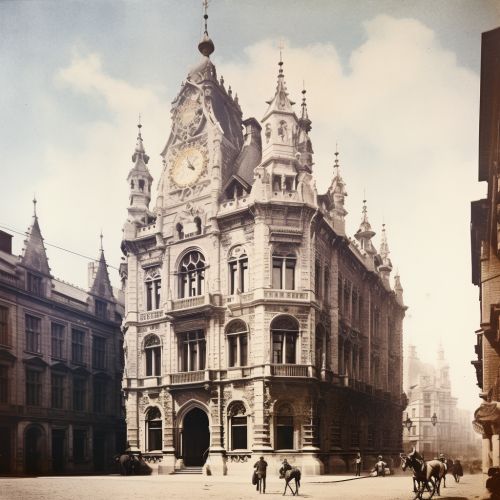Carl Wilhelm Scheele
Early Life
Carl Wilhelm Scheele was born on December 9, 1742, in Stralsund, which was then part of Swedish Pomerania. He was the seventh child in his family. His father, Joachim Christian Scheele, was a merchant and city councilor. His mother was Margaretha Eleanore Warnekros.


Education and Early Career
Scheele began his education at a private school in Stralsund. However, his family's financial difficulties forced him to leave school early. He was apprenticed to a local apothecary, Martin Andreas Bauch, at the age of fourteen. During his apprenticeship, Scheele developed a keen interest in chemical experiments, which he carried out in his spare time.
In 1765, Scheele moved to Stockholm, where he worked as a clerk in an apothecary shop. He continued his chemical experiments, often working late into the night. His dedication and passion for chemistry caught the attention of the shop's owner, who allowed Scheele to use the shop's laboratory for his experiments.
Discoveries and Achievements
Scheele is credited with the discovery of several chemical elements and compounds. His most notable discoveries include oxygen, manganese, barium, and chlorine. He also discovered a number of organic acids, including lactic acid, citric acid, and uric acid.
Discovery of Oxygen
Scheele's discovery of oxygen, which he called "fire air," was one of his most significant achievements. He discovered oxygen independently of Joseph Priestley and Antoine Lavoisier, although his work was published after theirs. Scheele conducted experiments on air and found that a portion of it supported combustion and respiration, which he correctly identified as a separate component of air.
Discovery of Manganese
Scheele discovered manganese in 1774. He obtained the element by heating the mineral pyrolusite (manganese dioxide) in the presence of charcoal. Scheele recognized that the resulting substance was a new element, which he named "manganese."
Discovery of Chlorine
Scheele discovered chlorine in 1774, although he thought it was a compound rather than an element. He produced chlorine by reacting hydrochloric acid with manganese dioxide. Scheele noted the gas's bleaching properties and its irritating effect on the respiratory system.
Later Life and Death
Scheele continued his work as an apothecary and chemist throughout his life. He never married and lived a modest and dedicated life to his work. He died on May 21, 1786, at the age of 43. The cause of his death is believed to be mercury poisoning, a result of his extensive work with toxic chemicals.
Legacy
Scheele's contributions to chemistry have been widely recognized. He was a meticulous experimenter and made significant contributions to the understanding of chemical substances. His work laid the foundation for many later developments in the field of chemistry.
Despite his significant contributions, Scheele did not receive the same level of recognition as some of his contemporaries, such as Lavoisier and Priestley. This is largely due to the fact that his work was often published after theirs, despite his independent discoveries.
Nevertheless, Scheele's work continues to be highly regarded in the scientific community. His discoveries of oxygen, manganese, and chlorine, among others, remain fundamental to the field of chemistry.
